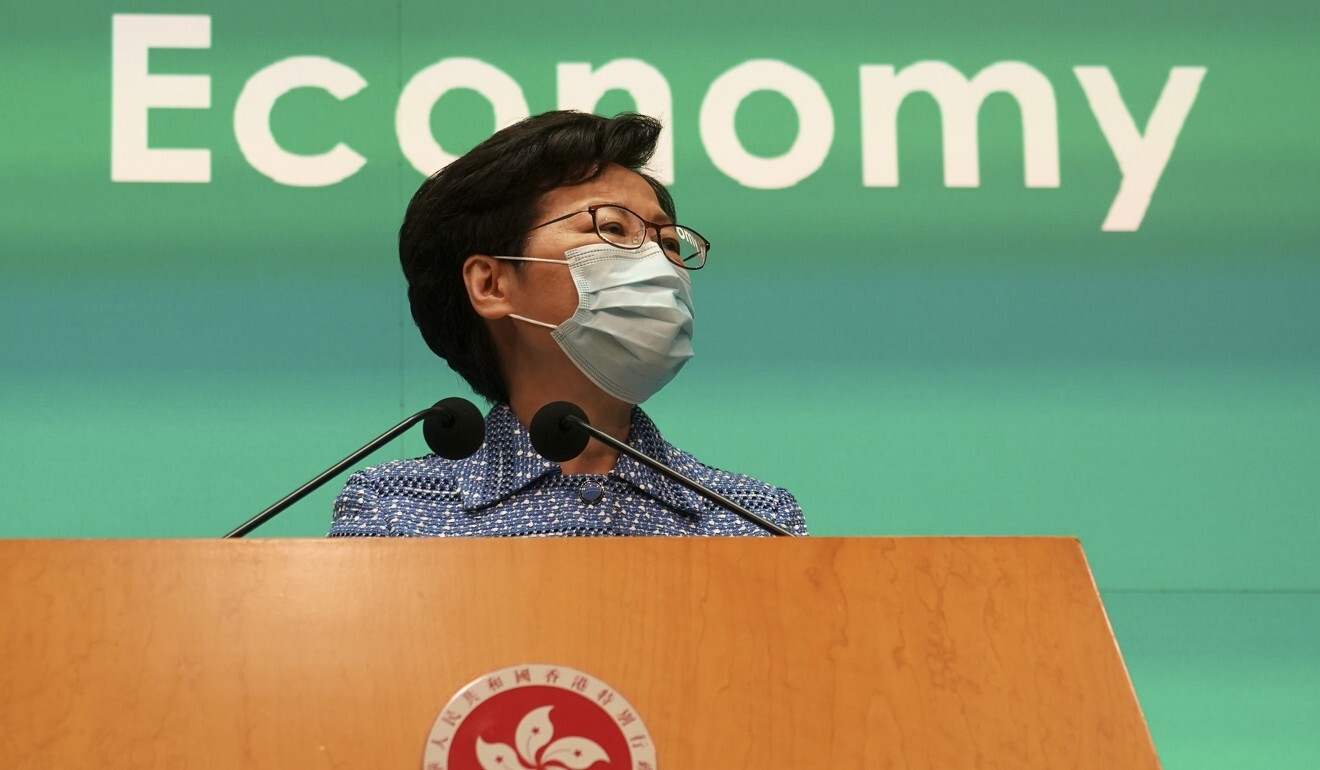
No pay rise for Hong Kong’s civil servants for first time in more than a decade amid coronavirus-induced economic slump
- Executive Council’s decision reverses earlier recommendations by an official pay trend committee for rises
- The government pay trend survey suggested salary rises of between 1.15 per cent and 1.98 per cent for civil servants
Civil service unions slammed the move.
It is the first time in 11 years that government workers will not get a rise. In 2009, pay for lower- and mid-level civil servants was frozen while their higher-ranking colleagues took a 5.38 per cent cut, in light of the weak economy after the global financial crisis.

Last month, the government pay trend survey suggested salary rises of between 1.15 per cent and 1.98 per cent for civil servants, already the lowest increase in almost a decade. The lowest earners would get a 1.15 per cent rise, those in the middle ranks 1.98 per cent, and the highest earners 1.68 per cent.
In a statement, a spokesman for the Civil Service Bureau cited the weak economy and a huge deficit as among the major reasons for the pay freeze.
“The threat of Covid-19 and the necessary anti-epidemic measures seriously disrupted a wide range of economic activities in Hong Kong,” the statement said.
“[GDP] contracted sharply by a record 8.9 per cent year on year in the first quarter of 2020. Furthermore, the seasonally adjusted unemployment rate, after rising noticeably from 3.3 per cent in the fourth quarter of 2019 to 4.2 per cent in the first quarter of 2020, surged further to 5.2 per cent in February to April 2020.”
The statement added: “The government ran a fiscal deficit of about HK$10.6 billion in 2019-20, the first time for Hong Kong over the past 15 years. In 2020-21, the fiscal deficit is estimated to increase substantially to around HK$280 billion or even more.
“As at March 31, 2020, the fiscal reserves stood at HK$1,160.3 billion, though the figure is expected to drop to around HK$800 billion to HK$900 billion by the end of 2020-21.”
“The annual pay adjustment does not necessarily follow mechanically the indicators derived in the pay trend survey,” she said.
“Every year, it is determined after the Executive Council takes into consideration a basket of factors.
“We all know Hong Kong is facing an unprecedentedly poor economic situation.
“I hope [our 180,000 civil service colleagues] can understand and appreciate that Hong Kong is facing a very difficult time. Everyone is in the same boat and we need to be united to ride out the difficult time together.”

Major civil service unions, however, expressed deep disappointment at the decision, with one threatening to withdraw from the government pay adjustment mechanism for good.
Leung Chau-ting, chief executive of the Federation of Civil Service, said the pay freeze was politically motivated as Lam hoped to please the public and boost her popularity.
“If civil servants get no pay rise, the chain effect is that the private sector will also freeze pay, or even cut pay. It is not good to all Hong Kong employees,” Leung said.
The staff side of the Disciplined Services Consultative Council (DSCC), which covers about 50,000 personnel, also expressed disappointment. DSCC staff side chairwoman Bonnie Lo Hoi-sze said it would hit staff morale.
Disciplined services staff body hits out at proposal for pay freeze
Sharing Leung’s views, Lo also said: “If there is an established mechanism, the government should follow it. Otherwise, what is the point of having the mechanism?”
The Hong Kong Chinese Civil Servants’ Association, which represents about one-third of government workers, threatened to withdraw from the pay adjustment system.
Association chairwoman Li Kwai-yin said: “If they continue to do the pay trend survey next year, it is almost certain we will get a pay cut in the wake of the currently poor economy. That will threaten the stability of the civil service.”
Last year, civil servants received pay increases of between 4.75 per cent and 5.26 per cent.
In 2017, to boost staff morale, the government departed from the usual practice and raised pay by 0.5 percentage points above what the survey had suggested.

